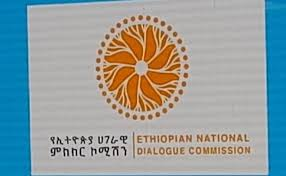
The concept of “home’ has different interpretations and meanings for different people.
Some people say that home is where you were born, where you can lead a comfortable life, spend both good and bad moments with your families, relatives, friends, neighbors and the nearby communities and your source of love, warmth, happiness and all memories.
Others say that home is not necessarily where you were born or the birthplace where you spent good and bad times with your family, neighbors and friends. It is not even a place where you accumulate wealth. Rather, it is where your heart is. Where your affection lies and emotionally connected though it is not your birthplace and the people are not your own descendants. For these people, the saying “home is where the heart is,” the most fitting maxim.
No matter what it may cost them, these people listen to what their heart tells them and move to other areas, leaving behind the comfortable life they lead.
This same has happened to Program Coordinator of Afar Pastoralist Development Association (APDA) Valerie Browning, or Maalika, as the people of Afar called her, to mean “Queen.”
It was three decades ago, while she was only 22, a British-born young volunteer Australian nurse, named Valerie Browning, came to Ethiopia to help people affected by devastating famine. When she came to Ethiopia, the nurse had limited or no clue about the African Continent and Africans. Even she had never dreamt of spending the rest of her life in the continent where she was totally unfamiliar with. However, as luck would have it, the young nurse who came to Ethiopia to assist drought affected people made her living in Afar State, the hottest area in Ethiopia.
At the interview she held five years ago with Barefoot Initiative, a Non-Government Organization (NGO) working to assist communities in the Afar, Maalika said: “I live here and I will die here.” And now, 35 years have already elapsed since Maalika has started living in Logya, in Afar State, devoting her life to the people of Afar.
As Valerie stated to The Ethiopian Herald, she grew one of 8 children on a farm in NSW Australia; and when she was only 16 years going on 17, she left the rural area and went to Sydney to train as a nurse and midwife.
“When I was 22 years old, in 1993, the first recorded famine happened in Ethiopia. My friend, she was only 23, saw the news in a newspaper and decided then and there to put both our names down to volunteer to go as nurses from Australia as a ‘medical team’ to assist in the disaster.”
The most surprising thing was that neither of them had any real idea about Ethiopia or even the name of the capital city, Addis Ababa. Just following what their heart told them to do, they went for it- they signed and enrolled in the list of Christian mission organization called Sudan Interior Mission. And without really making any decision or knowing, within 10 days of that; they were sitting on a plane bound for Ethiopia via New Delhi in India.
“All I remember was how we thought we could assist by allowing other nurses from the capital Addis to go to the famine area by doing their work in Black Lion Hospital, for example.”
Anyway, before they knew it, they were on a bus going to Alamata, Tigray State, where the Mission had a base and Save the Children, a charity organization for children, was working.
“Actually, I tried to get out of it by claiming we would be useless since we had no idea of malaria or any other local sickness, nor did we know anything about the people. Within a week of reaching Alamata, we were sent down the escarpment with donkeys and 2 translators from Asmara University to treat sick and starving people. We were both shocked with what we saw and, since I could not align how this tragedy had happened, people simply dead and dying of malnutrition – I have always remained with the determination to fight utter injustice and to seek to serve local people,” she said trying to recall her past experiences as a nurse in unknown place with unfamiliar people.
“One mother had brought 3 of her children to us in what was called Gubgubdo – now called Yallo in Afar State to treat – all 3 died in front of us from midday till the evening from starvation,” Maalika said sadly.
Driven by the hatred of injustice, after that she worked for 2 years in a Sudanese Refugee Camp during the Dergue war; learning much more about situations of struggles for freedom.
Eventually, in the 1980’s she worked voluntarily as a freelance journalist to the BBC broadcasting about refugees coming into Somalia, the injustice of no food being given to them. And eventually Maalika met and married her Afar husband, Ismael Ali Gardo, in 1989. They got married and at first started living in Djibouti.
Since then, her ongoing life of learning privilege showed her the cause of the Afar people and, at the beginning of the Djibouti civil war; she was there when 34 Afar people formed the organization where she is serving now as program coordinator for Afar Pastoralist Development Association.
At that time, the people of Afar were looking for how they could participate in such basic social services as education, health care and even get involved in the market. The clan elders, who were the drivers of the organization, were only seeking the ‘kick-start’ that their people could run their own assistance.
Unfortunately, this did not happen as droughts, locusts, floods, disease outbreaks have pushed Afar people from being self-sufficient to having the extraordinarily high food insecurity they have today. The 2021/ 22 northern conflict, on its part, added to the overall disaster, as she stated.
“Today, I am the Program Coordinator for Afar Pastoralist Development Association, an all-Afar organization working deeply in the communities where roads do not reach and people have no services. After all these years, I am still driven to be part of seeing justice done and am utterly inspired by local people who have made such amazing changes. It is made possible to reduce maternal mortality from one of the worst in the world to less than the Ethiopian average, that the Afar leaders as well as women are stopping harmful practices including FGM and literacy has brought Afar into places to be university lecturers as well as government leaders is such a thrill,” Maalika remarked.
According to Maalika, in each and every of her steps, God is within her.
“As with my earlier life, it is God in Heaven who keeps me here and invigorates me for each day’s challenges. For any of us, especially women who think they are ‘up against the wind’ to achieve what they want to, they should realize the whole purpose, scope and plan is not theirs, it is Eternal.
Our challenges are now even bigger but, in the end, if we stay true to our belief and to the people we serve, all can be solved. The political tangle we live in today is the doing of us who stand up and judge one another – that must stop. For me, the Afar people with their amazing sense of justice and serving one another are an absolute inspiration and teacher I can never be grateful enough for,” Maalika, a visionary woman who is striving to solve problems and improve the lives of the people of Afar, concluded.
For the people of Afar, words seem inadequate to express their gratitude to Maalika. According to them, the utmost energies she has been and is still exerting to improve the lives of the pastoral community, reduce the level of illiteracy, eliminate harmful traditional practices, including Female Genital Mutilation (FGM), promote maternal and child health care and reduce obstetric fistula, education and social affairs among others, are bearing fruits.
In the achievement gained so far and the changes witnessed in the State, the footprints of Maalika, and her colleagues, are always there.
Joining hands with local people and committed to bring about a significant and lasting impact in the lives of Afar people, she is striving to make her dream a reality. And undoubtedly, they will all achieve what they aspire to achieve.
BY ELIZABETH MENGISTU
The Ethiopian Herald September 7/2023




